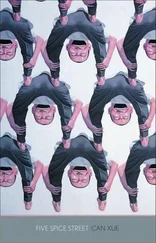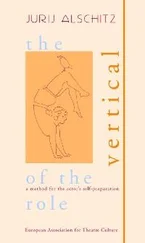After Mei came to, she heard dili, dili . It was Jin fiddling with the flower seeds. It was a little warm in the room because he had drawn the thick drapes. All the lights were out except for a small reading lamp on the desk. All of a sudden, Mei felt as if she were living in a cave. She groped her way toward the study.
“Have a seat,” Jin said, pointing to a chair beside him. “This is something I asked Teacher Bing for today.”
Ah, it wasn’t flower seeds. It was a beautiful gem.
“He no longer has anywhere to plant seeds. He gave it to me. I was really baffled.”
In the lamplight, Mei picked up a jade-green seed, and the light immediately penetrated it. She noticed a dark little spot floating inside it. She couldn’t keep from saying:
“These are all stones; they aren’t plants.”
“Hmm. Could be. Anything is possible, isn’t it?”
In the lamplight, Jin’s eyeballs became two blank dots. He turned around.
Mei took stock of his back, which reminded her of how he looked when he appeared on the horizon of the ruins today. She heard two people digging outside. It must be Ayi and her husband.
“I gave them seeds,” Jin said without moving.
Mei wanted to get up and go outside, but Jin checked her, saying:
“Don’t look. It’s something private — just between them.”
I like to sit at the desk and tally the accounts. I look out the window: a gray structure built of granite is about one hundred meters away. Its windows — two rows of them — are all positioned in high places. Each window is narrow, and at night most of them are dark. A little faint light shines through from only two or three windows, giving people an unfathomable feeling. In front of the structure is a path, where people in twos or threes frequently pass by. Some are going to work, some are running errands, and some are children going to school. They all walk quite rapidly. In the sunlight, their shadows flash past the stone wall. I’ve never seen anyone emerge from the granite building, whose small black iron front door has been closed for years. But on the door is a large, new, gold-colored lock.
One day, when I was at the desk and facing the window in a daze, my husband said from behind me, “Listen. Someone in back is weeping.”
Terrified, I concentrated intently, but neither heard nor saw anything. Out in front, because there had just been a rainstorm and there was still the sound of light rain, no one was on the path. But the granite building was actually a little different.
“Someone’s coming over,” my husband said. “It’s the person who was weeping.”
I held my breath and waited. I waited a long time. There was no one. The rain fell heavily again, with a hualala sound. The shrubbery was bending in the wind. My face fell, and I said, “Why don’t I see anyone?”
“What a shame. I think it’s your brother. With a flash of bright light, he disappeared on the wall. I wish you had seen this.” My husband was still emotionally absorbed in what was happening.
“Did he completely vanish on the wall?”
“I certainly heard him weeping — over there, next to the persimmon tree.”
The week before, Brother had come to our home. He hadn’t been well-dressed and looked like a tramp. But he didn’t talk at all the way a tramp does. He’s always been shy, saying very little. Each time he comes to our home, he sits in a corner, for he doesn’t want to attract any attention. Because he doesn’t have a real job, my husband feels guilty and gives him a little money now and then. Brother takes the money and sneaks away. It’s always a long time before he shows up again.
When talking about him, my parents say, “We don’t know what to think of him. We never get a clear-cut impression of him.”
Could what happened be a figment of my husband’s imagination? I wanted to ask him, but he had already forgotten the incident. He had picked up the account books and was examining them carefully.
People were passing by in front of the granite wall — two young people, a man and a girl. The girl was lame. Holding aloft a large, sky-blue umbrella, the man was keeping the woman from being drenched by the rain. They were talking as they walked. A long time passed before I could hear their alternately loud and soft voices. Blending with the sound of the rain, their voices remained out there below the gray sky.
After a few days, Brother came over and sat on the edge of the desk, dangling his skinny legs. When I mentioned the granite structure across the way, his face immediately clouded over.
“I always hear someone weeping there,” I said.
“Why don’t you walk over to the front of the wall and take a careful look?” Brother mumbled as he jumped down from the desk. With his back to the window, he blocked my line of sight. “Fantasy is still the way we do things best.”
Lowering his head, he walked out, seemingly quite irritated.
The granite façade glimmered in the murky twilight. Next to the wall, some people walking past were dimly visible. What on earth was going on over there? I hadn’t heard Brother weeping; I had just wanted to draw him out to talk about some things, and so I had lied to him. He must have grown angry because he saw through my ruse. Could my husband have told a lie? I made up my mind to go over to the wall the next day to take a close look.
=
It could be said that I had “turned a blind eye” to this building for years. The granite wall was very old with dark watermarks on it. This was a deserted building. I heard a key turn twice in the lock, and the door opened with a creak. I went inside without a second thought.
A person with his back to me was standing in the empty corridor. In the dim light, I couldn’t get a good look at his face. I thought he was crying.
“On the 18th of April, you saw the beginning and the end of the matter,” he said, his bare head gleaming and closing in on me. I still couldn’t see his face well. I waited for him to go on talking, but he didn’t: it was as if something had struck him. Bending over, he began to sob softly.
No one else was in the corridor, and the atmosphere was gloomy. He squatted against the wall and cried. As he sobbed, his aged back shuddered. Just then, from somewhere outside, I heard the sound of a car rolling by. At the end of the corridor, someone quite angrily bumped into the door with a peng .
“Probably you know my brother?” I bent down and shouted at the man.
“It’s too late. Too late!” he said, out of breath, through his tears.
As I stood there, both ashamed and afraid, countless emotions welled up in my heart. He began scrabbling at the crumbly limestone wall with his fingers, making a nerve-racking sound. The dust kept falling.
“Brother! Brother! Don’t leave me behind alone!” I blurted out in despair.
At this, the person stopped crying right away and stood up like a gravely wounded wild animal. He turned toward me. Now he and I were so close to one another that we couldn’t have been any closer. His sleeves touched my hand. The strange thing was that his face was still a dark shadow. No matter which angle I looked from, I couldn’t see his true face. It was as if the light couldn’t reach it.
He began backing away from me. For each of his steps backward, I took a step forward. Our entangled shadows were reflected on the wall; it looked as if we were fighting. I felt an unparalleled tension. All of a sudden, the doors on both sides of the corridor opened, and he turned around and fled. It seemed that people in all the rooms were craning their necks to watch. I didn’t dare stay here, so I turned, too, and ran out the front door.
I stopped at the end of the path. Looking back, I saw that the door was still standing wide open. Inside, the corridor was pitch-dark, and the lights in those few windows had all been turned off. The structure had once more become lifeless. I looked up at the sky: it was actually already daybreak.
Читать дальше












